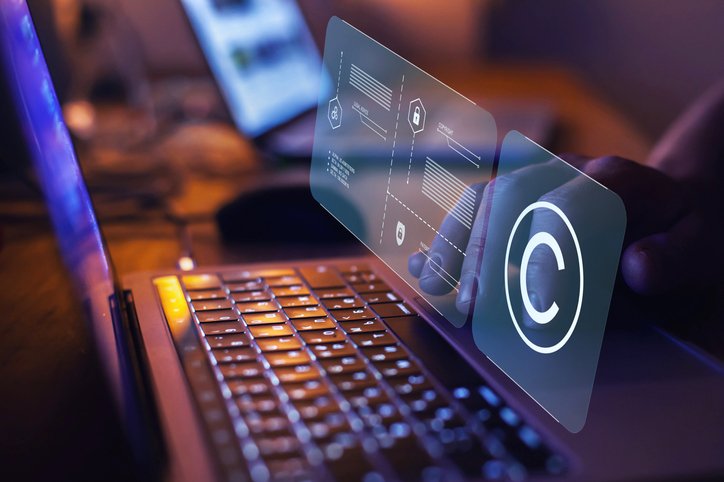Navigating Copyright in the Age of AI-Generated Content
Artificial Intelligence (AI) has revolutionized various industries, including content creation. AI can now produce written content, music, images, and videos using natural language processing and machine learning advancements. Although this innovation brings exciting possibilities, it raises crucial questions about copyright ownership and infringement. This blog post will explore the intersection of copyright law and AI-generated content, examining the challenges and potential solutions in this rapidly evolving landscape.
Understanding AI-Generated Content:
AI-generated content refers to creative works that are produced entirely or partially by AI algorithms without any direct human involvement. These algorithms analyze extensive data and learn patterns to generate original content that often imitates human-created works. AI algorithms have shown remarkable abilities in producing content across various genres, including news articles, blog posts, music compositions, and visual art. The content produced by AI-powered algorithms is becoming increasingly difficult to differentiate from that created by humans.
Copyright Ownership and AI:
The issue of copyright ownership can get complicated when it comes to content generated by artificial intelligence (AI). Generally, copyright law grants ownership to the creator of a work, but what happens when a machine creates the content? Most copyright laws worldwide recognize human creators as the rightful owners of copyright-protected works. This means that AI-generated content does not qualify for copyright protection.
However, suppose a human plays a significant role in the creation process, such as providing input, selecting the output, or curating the AI-generated content. In that case, they may be considered the author and rightful copyright owner. Determining the level of human involvement can be challenging and subjective, leading to legal uncertainties and potential disputes.
Copyright Infringement and AI:
The use of AI-generated content has raised concerns over copyright infringement. With the ability to analyze large volumes of existing content, AI algorithms learn and replicate patterns that can be used to create new and original content. However, this also increases the risk of unintentional infringement. AI algorithms may unintentionally produce content that closely resembles existing copyrighted works, which can lead to potential legal issues.
Addressing the Challenges:
To tackle the copyright challenges associated with AI-generated content, it is crucial to take certain steps as the legal landscape evolves to keep pace with AI advancements. Some of the strategies that can be employed to address these challenges are:
1. Clarification of Laws and Regulations: Governments and policymakers must collaborate to develop guidelines and regulations that explicitly address copyright ownership and infringement in AI-generated content. These guidelines can help establish criteria for determining human involvement and ownership, providing clarity for creators, users, and legal professionals.
2. Licensing and Attribution: Content creators and AI developers should consider implementing licensing frameworks that define the use and attribution of AI-generated content. By clearly defining the rights and responsibilities of creators and users, such frameworks can ensure that original content is fairly compensated and acknowledged while also respecting copyright laws.
3. Technological Solutions: AI technologies can be used to help address copyright challenges. Developers can integrate algorithms that proactively analyze AI-generated content, detecting any potential copyright infringements. These tools can assist creators and users in identifying and mitigating any unintentional violations.
4. Collaboration and Communication: Collaboration between AI developers, content creators, and legal experts is essential. Open dialogue and sharing of best practices can establish industry standards and ethical guidelines for AI-generated content, ensuring compliance with copyright laws while fostering innovation.
The rise of AI-generated content brings about both opportunities and challenges in the field of copyright law. Balancing the rights of human creators, AI algorithms, and the public interest requires careful consideration and collaboration among different stakeholders. As AI technology advances, legal frameworks must adapt and provide clarity to facilitate the responsible and ethical creation, use, and protection of AI-generated content. By adopting a proactive and inclusive approach, we can harness the power of AI while upholding copyright law principles in the digital age.
Are you looking to expand your knowledge on AI? Please click the button below to read more of our blogs.
**The information provided herein is a general background of contractual, technology and intellectual property law concepts. It does not constitute legal advice, and should not be relied upon as legal advice. Athena Innovation & Legal, nor the author, make no express or implied representations or warranties in respect of the information, including but not limited to the accuracy of the information.**

